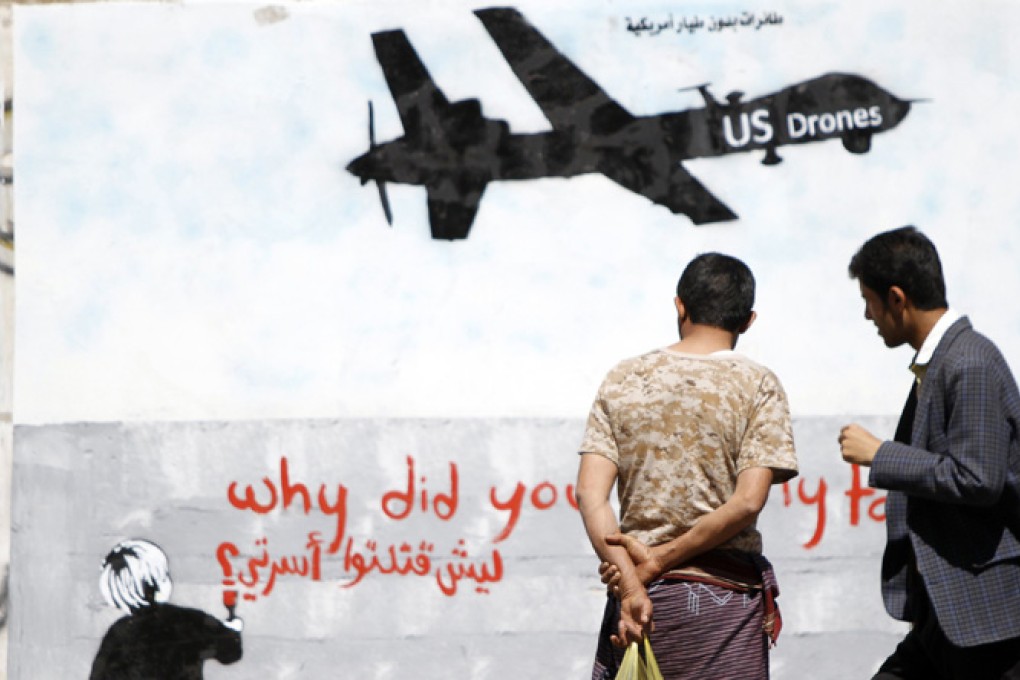US drone missiles kill 17 in Yemen attack on wedding party convoy
US attack leaves at least 17 dead but identities of victims not yet known

Missiles fired by a US drone slammed into a convoy of vehicles travelling to a wedding party in central Yemen, killing at least 17 people, Yemeni security officials said.
The officials said the attack took place on Thursday in the city of Radda, the capital of Bayda province, and left charred bodies and burnt out cars on the road.

There were no immediate details on who was killed in the strike, and there were conflicting reports about whether there were militants travelling with the wedding convoy.
A military official said initial information indicated the drone "mistook" the wedding party for an al-Qaeda convoy. He said tribesmen known to the villagers were among the dead.
One of the three security officials, however, said al-Qaeda militants were suspected to have been travelling with the convoy.
The CIA declined to comment on the reported strike, which is normal policy.